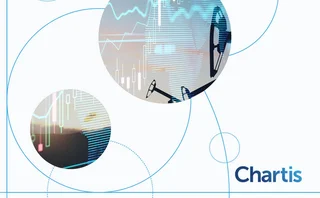
Innovation of the year, Asia: BOCI

China’s enormous commodity market is opening up to the world. Earlier this year, the Shanghai-based International Energy Exchange (INE) launched a crude oil futures contract accessible to offshore and domestic investors alike, while the Dalian Commodities Exchange (DCE) opened its iron contracts to international traders.
But, compared with more mature commodity markets, a clear gap exists: “There has been no broad-based commodity reference index for the Chinese market,” observes E-Lei Lau, head of commodities structuring and investor sales at Bank of China International (BOCI), the investment banking arm of Bank of China.
That changed in June, with the launch of the BOCI China Commodities Index (BOCI CCI). It tracks 25 major onshore Chinese commodity futures contracts, and promises to offer both domestic and offshore investors a transparent and liquid benchmark as the country gradually internationalises its commodities markets.
Tong Li, chief executive of BOCI, notes that the INE and DCE contracts have attracted the attention of both onshore and offshore investors. “By launching the index, we endeavor to provide market participants better insight into China’s domestic market,” he says.
Lau and her team had been working on the index design for more than a year, but the moves by the INE and the DCE encouraged them to advance their plans. “The market has moved faster than we expected,” she says. The INE and DCE contracts spurred offshore interest in commodity futures that BOCI hopes to capitalise on with its index.
In terms of underlying products, there is a big difference between the Chinese commodity futures markets and the global markets as tracked by indexes such as the Standard & Poor’s Goldman Sachs Commodity Index (S&P GSCI) family, or the Bloomberg Commodity Indexes (BCOM). While the latter are dominated by energy contracts, BOCI CCI includes other commodity futures contracts that are only liquidly traded in China, in particular on ferrous metals and petrochemicals underlyings. This has helped the BOCI CCI outperform global benchmarks in recent years, says Lau.
“There is significant divergence between the performance of the BOCI CCI and global commodity benchmarks, mainly because ferrous metals and petrochemicals have seen huge rallies in the past two years,” she says. Between February 2016 and September 2018, the BOCI CCI returned 54%, compared with 35.3% for the S&P GSCI, and just 10.3% for the BCOM.
Creating and maintaining such an index requires in-depth knowledge of the nuances of local commodity markets, Lau says. While much of the data on exchange prices, trading volumes and open interest can be sourced through Bloomberg or other information providers, it is also important to understand the nuances around how local futures markets trade. “In mature Western markets, there tends to be liquidity further out the curve. In China, liquidity tends to be concentrated in the front, or in particular months. You need to be aware of that,” she says.
In more mature commodity markets, passive commodity investors are a big part of the ecosystem – it’s a part of the market that’s missing in China
E-Lei Lau, Bank of China International
In the near term, Lau hopes the index will encourage domestic investors to approach China’s commodity markets in a different way. “Onshore retail commodity investors tend to be highly speculative, and trade very frequently,” she says. “In more mature commodity markets, passive commodity investors are a big part of the ecosystem – it’s a part of the market that’s missing in China.” Such buy-and-hold investors tend to reduce market volatility, and provide consistent liquidity that aids commercial hedging activity.
Lau adds BOCI is in discussions with a number of onshore institutions about offering investment products linked to the composite index, or to sub-indexes comprising the most liquid contracts. The bank is also talking to institutional clients about private placements or swaps linked to the index.
For offshore clients, it’s a longer game. “Currently, offshore investors can only access the crude oil and iron contracts – so we can provide products linked to them,” she says.
Longer term, the index is about laying the foundations and frameworks for offshore investors to understand and begin to access China’s commodity markets, Lau says. “As more and more [futures] contracts are opened to international investors, we’re ready with the platform and the distribution capability.”
Raymond Lau, the chief operating officer of BOCI Global Commodities, notes that the launch of the index is part of a wider strategy at Bank of China to bring together the domestic and international capital markets. “We’re working side-by-side with international investors and local market participants, to act as a bridge between China and the world’s capital markets,” he says.
Only users who have a paid subscription or are part of a corporate subscription are able to print or copy content.
To access these options, along with all other subscription benefits, please contact info@risk.net or view our subscription options here: http://subscriptions.risk.net/subscribe
You are currently unable to print this content. Please contact info@risk.net to find out more.
You are currently unable to copy this content. Please contact info@risk.net to find out more.
Copyright Infopro Digital Limited. All rights reserved.
As outlined in our terms and conditions, https://www.infopro-digital.com/terms-and-conditions/subscriptions/ (point 2.4), printing is limited to a single copy.
If you would like to purchase additional rights please email info@risk.net
Copyright Infopro Digital Limited. All rights reserved.
You may share this content using our article tools. As outlined in our terms and conditions, https://www.infopro-digital.com/terms-and-conditions/subscriptions/ (clause 2.4), an Authorised User may only make one copy of the materials for their own personal use. You must also comply with the restrictions in clause 2.5.
If you would like to purchase additional rights please email info@risk.net
More on Energy
ETRM systems 2024: market update and vendor landscape
This Chartis report evaluates energy trading and risk management systems that provide front-to-back, asset class-specific and geography-specific coverage, and considers the full energy trade lifecycle
CTRM systems 2024: market update and vendor landscape
A Chartis report on commodity trading and risk management systems that considers its different applications and addresses the market and vendor dynamics to determine the long-term and structural impacts of the overarching market evolution on the…
Energy Risk Commodity Rankings 2024: markets buffeted by geopolitics and economic woes
Winners of the 2024 Commodity Rankings steeled clients to navigate competing forces
Chartis Energy50
The latest iteration of Chartis’ Energy50 ranking
Energy trade surveillance solutions 2023: market and vendor landscape
The market for energy trading surveillance solutions, though small, is expanding as specialist vendors emerge, catering to diverse geographies and market specifics. These vendors, which originate from various sectors, contribute further to the market’s…
Achieving net zero with carbon offsets: best practices and what to avoid
A survey by Risk.net and ION Commodities found that firms are wary of using carbon offsets in their net-zero strategies. While this is understandable, given the reputational risk of many offset projects, it is likely to be extremely difficult and more…
Chartis Energy50 2023
The latest iteration of Chartis' Energy50 2023 ranking and report considers the key issues in today’s energy space, and assesses the vendors operating within it
ION Commodities: spotlight on risk management trends
Energy Risk Software Rankings and awards winner’s interview: ION Commodities








